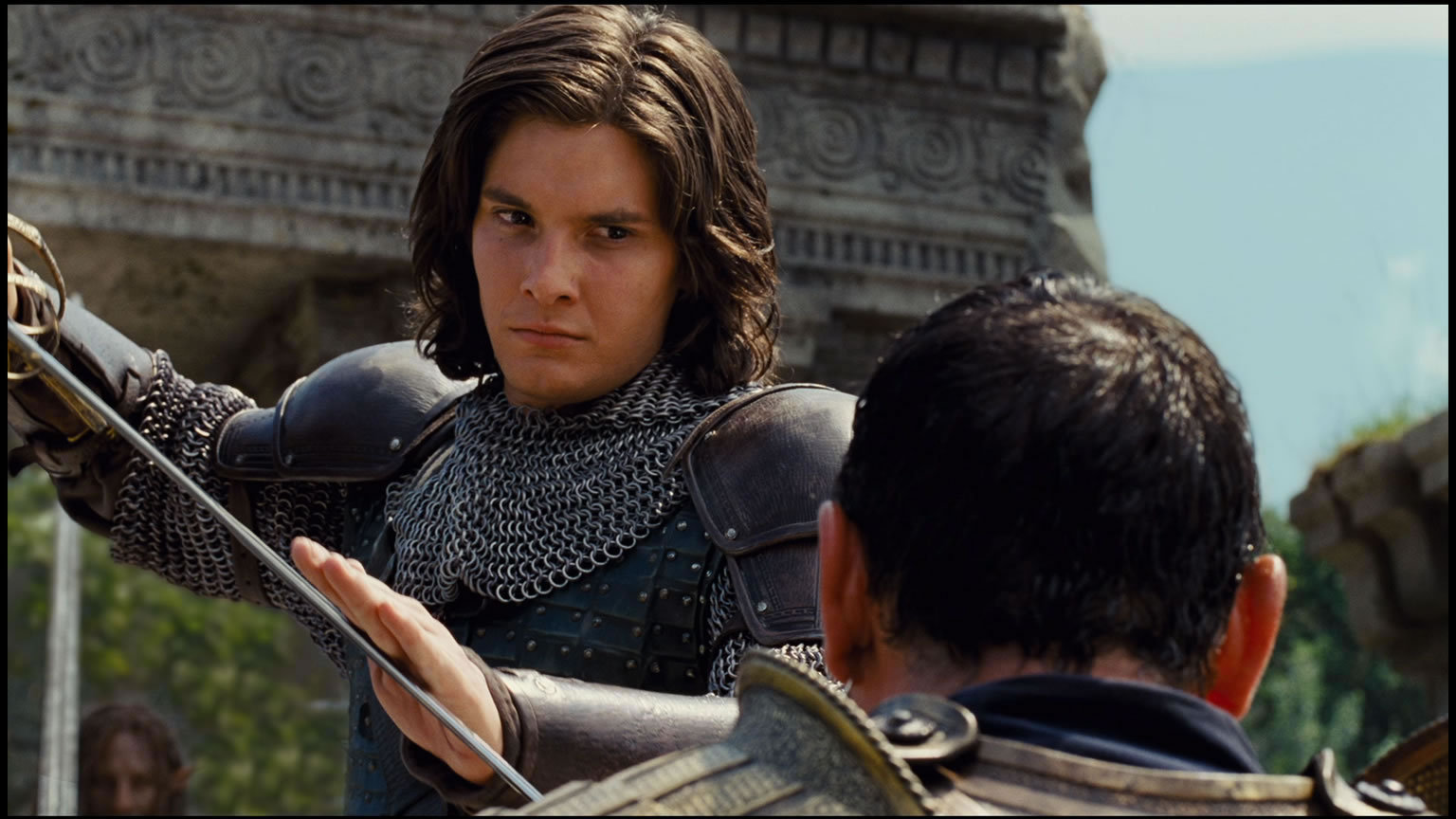“The Chronicles of Narnia: Prince Caspian” (2008)

“The Chronicles of Narnia: Prince Caspian” (2008) is the second film in the Narnia series, directed by Andrew Adamson and based on C.S. Lewis’s novel of the same name. It follows the Pevensie siblings as they return to the magical land of Narnia to help Prince Caspian reclaim his rightful throne.
Plot Summary
The story picks up a year after the events of “The Lion, the Witch and the Wardrobe.” The Pevensies—Peter (William Moseley), Susan (Anna Popplewell), Edmund (Skandar Keynes), and Lucy (Georgie Henley)—are transported back to Narnia, only to find that centuries have passed since they left. Narnia is now under the rule of the Telmarines, who have conquered the land and driven the magical creatures into hiding.
Prince Caspian (Ben Barnes), the rightful heir to the throne, escapes from his uncle, King Miraz (Sergio Castellitto), who wants to maintain control over Narnia. With the help of the Pevensies and allies like the noble mouse Reepicheep (voiced by Eddie Izzard) and the faun Trumpkin (Peter Dinklage), Caspian seeks to rally the creatures of Narnia and reclaim his kingdom.
Key Themes
- Courage and Leadership: The film explores the growth of Caspian as a leader, as well as Peter’s struggle with his own role as a king and protector.
- Faith and Belief: The importance of belief in the face of doubt is a recurring theme, particularly highlighted by Lucy’s unwavering faith in Aslan, the great lion and symbol of hope.
- Restoration and Reclamation: The journey to reclaim the throne symbolizes the restoration of peace and justice in Narnia, reflecting broader themes of rightful rule and belonging.

Notable Aspects
- Visual Effects and Action: The film features impressive special effects, particularly in depicting battles and fantastical creatures, enhancing the epic scope of the story.
- Character Development: Each of the Pevensies faces personal challenges and growth, particularly Peter, who grapples with his identity as a leader and his relationships with his siblings.
- Music Score: The score by Harry Gregson-Williams adds emotional depth to the film, enhancing both the action sequences and quieter, more introspective moments.

Reception and Legacy
“Prince Caspian” received mixed to positive reviews from critics, with praise for its visual effects, action sequences, and performances, especially from Ben Barnes and the returning cast. However, some felt it lacked the charm of the first film. Despite this, it remains a beloved installment among fans of the series.
Cultural Impact
While it did not achieve the same level of success as its predecessor, “Prince Caspian” contributed to the overall narrative arc of the Narnia films and helped maintain interest in C.S. Lewis’s beloved series. The themes of bravery, faith, and the struggle between good and evil resonate with audiences of all ages.











